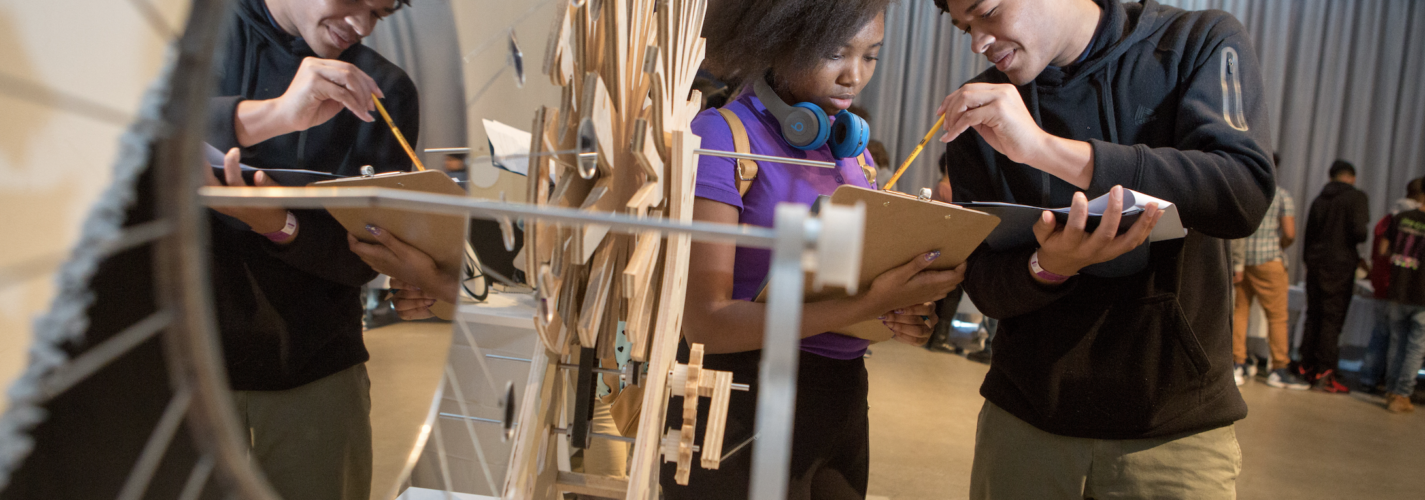Black Boys: Love Them, Nurture Them, Empower Them
By Keenan Jones
On a beautiful fall afternoon in Minnesota, drive around St. Paul, Minneapolis, or either of the Brooklyns (Brooklyn Park, Brooklyn Center) and you will see young, vibrant, and energetic Black boys riding bikes and doing what kids do—have fun. The smiles and laughter from these young men bring joy to my heart, as I see myself in each and every one of them. It brings me back to my childhood growing up in University Park, Illinois, and Gary, Indiana where I too was a young Black boy, walking the streets with other Black boys—and we dreamed about playing professional sports, being doctors, engineers, artists, and rappers. In some of our classrooms in Minnesota, however, what you see is something different altogether.
As an educator, I’ve often witnessed Black boys disengage from the school experience. And that missing connection is not some great mystery—all you have to do is talk to them. Entrenched in the data emphasizing that Black males remain one of the most socially and academically marginalized student groups in U.S. schools and the increasing disparity in dropout rates and achievement outcomes between Black boys and other populations, these intelligent young men raise common themes in their reflections on their daily experiences in school and society:
- “Why do they think we are aggressive?”
- “How come the police continue to kill us?”
- “Has the Black man been under attack since slavery?”
- “We just want to be successful and live good lives”
COVID-19 exacerbated many issues in American schools, but our Black boys have been hit the hardest in the last two years with battles in school districts across the country over race, a rise in gun violence, and the deaths of Black males by the hands of police. We know what is at stake for Black males in schools and we need action immediately. With every missed opportunity to educate and empower them to read books, we lose them to the school-to-prison pipeline.
Making Changes in the Classroom
In my time as a classroom teacher, best practices in culturally responsive pedagogy, student choice and voice, and personalized learning engaged my scholars, reigniting that same vibrancy you see outside the walls of school. (When the same experiences aren’t replicated in other settings, these same young men come back to me venting about what isn’t happening.)
I started a student club in 2019 to allow students to talk more about their feelings about school and society. We tackled a range of topics, including microaggressions, institutional racism, bias, goal setting, and career aspirations. I intentionally used critical and digital literacy strategies, to authentically engage them in understanding the world around them. Critical literacy allows students to examine social, political, and historical contexts and their influence on their everyday lives. Applying this practice with Black males, in particular, can advance academic achievement by challenging traditional literacy instruction. It encourages collaborative learning and allows students to establish a sense of social justice.
This group opened my eyes to the feelings of Black males in school and how they need support, encouragement, and the belief that they can be successful. Our education system has to make significant changes to ensure these young men get everything that they need.
Unfortunately, this cycle of Black male broken dreams continues today the same as it did for my peers over twenty years ago.
4 Research-Based Best Practices for Educators (+ Policy Change)
Our Black boys in Minnesota need all of us to fight for them like never before. Beyond my classroom experience, here are some research-based action steps proven to be effective and impactful in the Black male educational experience:
- Focus on language development in the earliest grades.
- Prioritize instructional materials that will engage and motivate Black boys to read more, encourage discussion, and build comprehension across subjects. (If needed, use supplement basal texts.)
- Make authentic and individual connections with Black boys who appear to be isolated or troubled.
- Participate in ongoing professional development to employ best practices in classroom management, cooperative learning strategies, and high-level student engagement.
Beyond changes that can be made in the classroom with administrative support, all district instructional policies and programs in Minnesota must be reviewed to ensure that they are comprehensive, systemic, and integrated to address the economic, social, emotional, and psychological needs of Black boys at the individual and instructional levels. A plan should be developed to review these policies and practices to determine if they are effective with respect to Black males.
Black boys want to be successful, they can be successful, but we must make sure that we love them, nurture them, and empower them.
EdAllies seeks to elevate diverse voices and foster a candid dialogue about education. While we provide our blog as a platform for EdVoices and other guest contributors, the views and opinions they express are solely their own.

